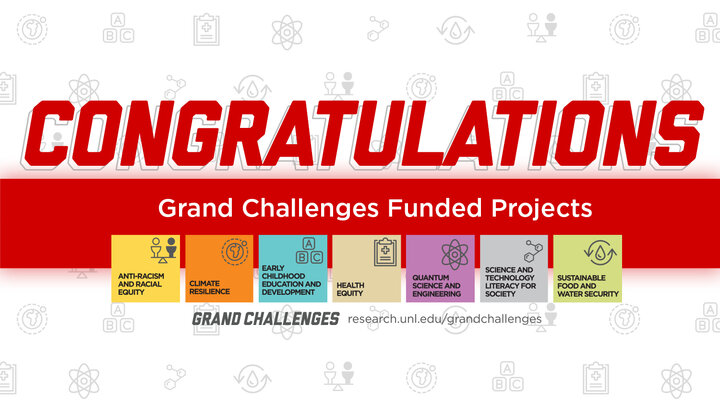Innovative research led by Katie Edwards and aimed at preventing sexual violence among indigenous youth has earned funding through the University of Nebraska–Lincoln’s first Grand Challenges Catalyst Competition. Edwards is an associate professor in the Department of Educational Psychology and the Nebraska Center for Research on Children, Youth, Families and Schools.
Edwards will lead a team of more than 20 Nebraska researchers, and representatives from tribal organizations, other institutions, and community partners to establish and evaluate an indigenous-led center dedicated to preventing sexual violence among indigenous youth. Focusing on an issue that has reached crisis levels, the center will work to reduce sexual violence in all indigenous communities nationwide.
The team aims to deliver innovative, empowerment-based and culturally grounded violence prevention programs to a majority of the 1.5 million Native American youth in the U.S. by 2050. The project received a four-year, $3,210,177 grant through the Grand Challenges initiative.
Through the catalyst competition, faculty were challenged to imagine how their research, scholarship, creative activity and outreach activities intersect with the challenge areas and to identify unique problems they could work across disciplines to help solve.
In addition, a research team including three CEHS researchers was awarded a Grand Challenges planning grant for a project titled “Nebraska Community Action Research for Equity and Sustainability (NE CARES) Hub.” The team includes Sarah Zuckerman, associate professor of Educational Administration ; Virginia Chaidez, associate professor of Nutrition and Health Sciences ; Megan Kelley, assistant professor of Nutrition and Health Sciences ; and Trey Andrews, associate professor of psychology and ethnic studies.
The Office of the Chancellor and the Office of Research and Innovation have committed up to $40 million over four years to invest in the Grand Challenges initiative.
Announced Aug. 30, this initial phase includes 13 awarded projects – three lead “Catalyst” awards and 10 planning grants – and represents a $10 million investment.
The Grand Challenges Initiative aligns with the university’s N2025 aims to increase the impact of research and creative activity, and to foster interdisciplinary endeavors.
A request for proposals for the 2023 Grand Challenges grant cycle will be released by Oct. 3. The Office of Research and Innovation will also host a slate of events to help faculty prepare for the next Catalyst awards competition. Details will be announced on the Grand Challenges website.
College of Education and Human Sciences
Educational Administration
Nutrition and Health Sciences




